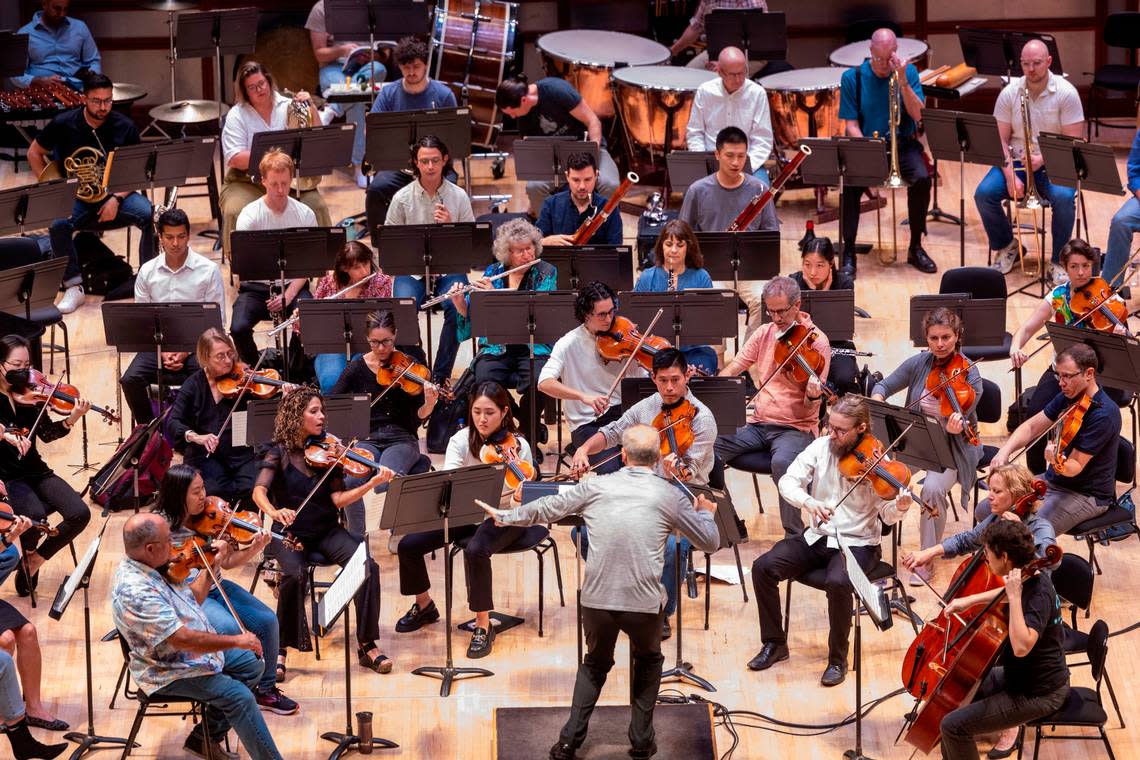NC Symphony wants suit over COVID-19 vaccine mandate dismissed on technical grounds

Three musicians fired by the N.C. Symphony Orchestra for not getting vaccinated against COVID-19 filed a lawsuit in August seeking their jobs back.
Now lawyers for the symphony and its president and CEO and the state agency that supports the orchestra say the lawsuit should be dismissed because it was filed too late and because it incorrectly claims the symphony is a part of state government.
The responses to the suit were filed in federal court in Raleigh on Nov. 3.
The lawsuit was brought by two French horn players and a violinist who decided they “could not receive a COVID-19 vaccine without compromising their faith.” They sought exemptions to the symphony’s vaccination requirement on religious grounds.
Symphony president and CEO Sandi Macdonald denied their request. In letters to the musicians in September 2021, Macdonald said the exemptions would cause an “undue hardship” for an orchestra whose players must rehearse and perform in close proximity to one other.
It would, Macdonald wrote, be “impossible to maintain the social distancing that would be required under applicable CDC guidance for an unvaccinated person in these settings, onstage, backstage and on buses when we travel the state to deliver our mission.”
Macdonald placed the musicians on unpaid leave for the 2021-2022 season and gave them until April 1, 2022, to get vaccinated, according to the symphony’s response to the lawsuit. After that deadline passed, the musicians were notified that they were fired effective June 30.
Later that summer and fall, each musician filed separate complaints with the U.S. Equal Employment Opportunity Commission claiming religious discrimination. On June 4, 2023, the EEOC issued “right to sue” letters, indicating it had determined there were grounds for claims of discrimination.
Lawyers: Delay made legal challenge too late
Lawyers for Macdonald and the symphony counter that the musicians waited too long to go to the EEOC, and that the lawsuit should be dismissed as a result.
The musicians’ suit repeatedly refers to Macdonald’s decision in September 2021 to deny the exemption as “preliminary.” It said Macdonald promised to meet with the musicians by April 1, 2022, to “discuss whether the symphony could accommodate them after that time.”
But in their response, lawyers for Macdonald and the symphony say nothing in the letters suggest the exemption denial was preliminary. They say Macdonald promised only to determine whether the musicians were in compliance with the vaccination mandate in April, not reconsider their request for exemptions.
Federal law gives someone 180 days to file a claim of discrimination with the EEOC. If the musicians were discriminated against, it was when Macdonald denied the exemption in September 2021, the symphony’s lawyers write. Instead, they waited until after they were fired, which the lawyers argue is too late for their case to be considered by the EEOC or the court.
Is the NC Symphony part of state government?
The other reason the court should dismiss the lawsuit, the symphony’s lawyers say, is that it incorrectly claims discrimination by agents of state government, namely the symphony and its president and CEO.
The suit outlines numerous ways the state and the N.C. Department of Natural and Cultural Resources support and oversee the symphony. The governor appoints four members to the orchestra’s board, for example, and in recent years, the state provided a third of its budget. Several high-level symphony employees work for the Department of Natural and Cultural Resources.
Harmeet Dhillon, founder and CEO of the Center for American Liberty, the nonprofit that filed the lawsuit, emphasized the government connection.
“The Constitution guarantees religious freedom,” Dhillon said in a written statement in August. “But if governmental agencies can force Americans to choose between continued employment and fidelity to religious beliefs, our most basic liberties are in jeopardy.”
But lawyers for the symphony argue that it is not a government agency and that Macdonald is not a state employee. Despite the state support, the symphony is operated by The N.C. Symphony Society Inc., a private nonprofit founded in 1933, and Macdonald works for the society.
The lawyers cite evidence of the symphony’s independence from the state, including that the society chooses a majority of its board members and the musicians belong to a union, something state workers are forbidden from doing under North Carolina law.
The musicians’ lawsuit also named the Department of Natural and Cultural Resources. The department also asked the federal court to dismiss the case because the musicians did not work for the state.
Firing ‘destroyed’ musicians’ careers
The lawsuit was filed by violinist Dovid Friedlander, who is Jewish, and horn players Chris Caudill and Rachel Niketopoulos, a married couple who are Buddhists.
The lawsuit says Friedlander believes his body is as God intended it to be and that he avoids taking any medications or vaccines. It says that based on their Buddhist faith, Caudill and Niketopoulos avoid any products that have been tested on animals, as the COVID-19 vaccines were.
The suit claims the symphony and Macdonald destroyed their careers and livelihoods by firing them.
“The orchestra community is tight knit, and jobs in orchestras are highly competitive,” the lawsuit says. “The devastating financial, professional, and emotional consequences of their terminations are difficult to overstate.”
The lawsuit says the symphony lifted its vaccine mandate this summer but did not invite the three musicians back. The suit asks the federal court to order the symphony to rehire them as well as pay damages and legal fees.

